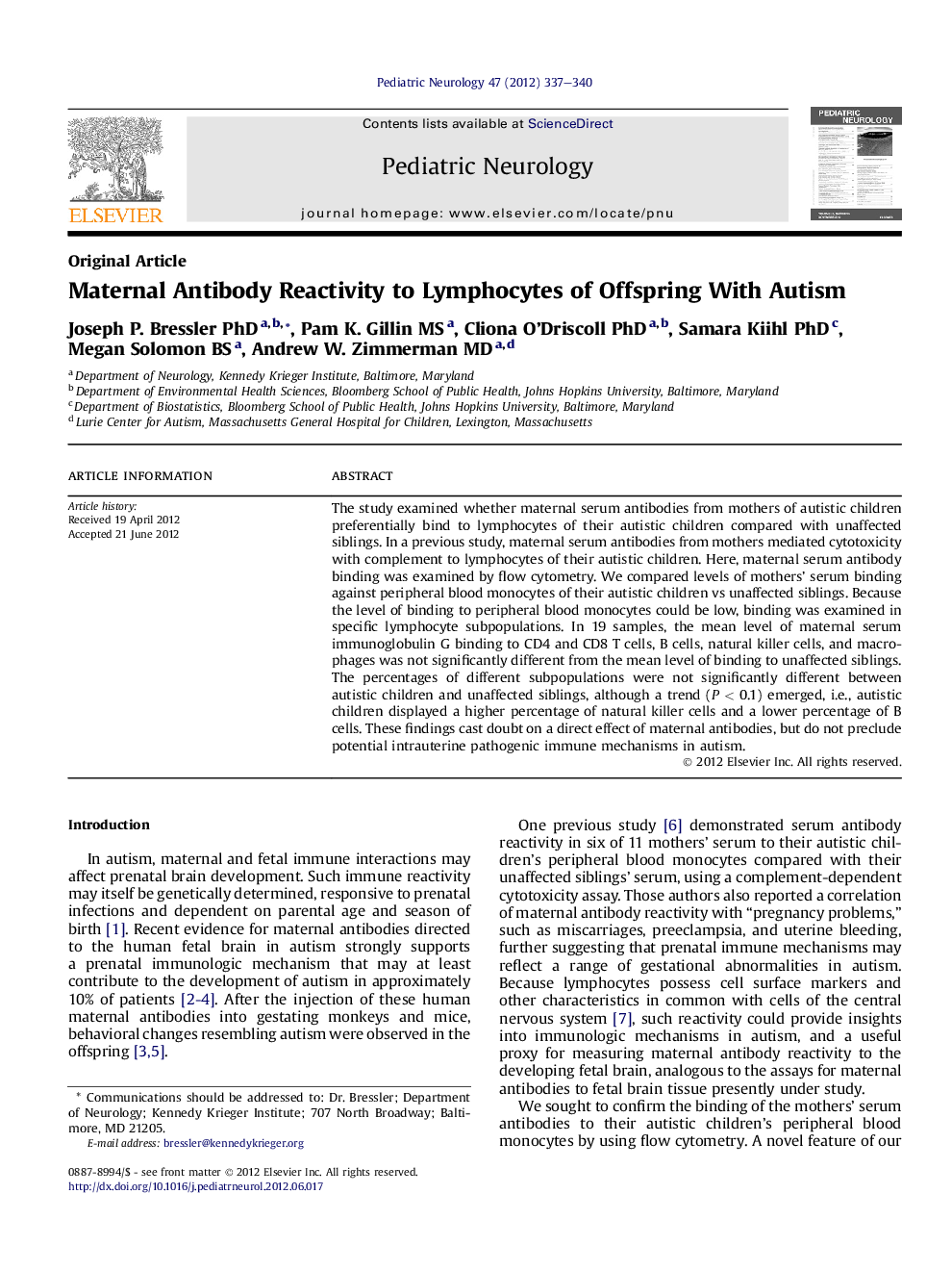| Article ID | Journal | Published Year | Pages | File Type |
|---|---|---|---|---|
| 6042679 | Pediatric Neurology | 2012 | 4 Pages |
Abstract
The study examined whether maternal serum antibodies from mothers of autistic children preferentially bind to lymphocytes of their autistic children compared with unaffected siblings. In a previous study, maternal serum antibodies from mothers mediated cytotoxicity with complement to lymphocytes of their autistic children. Here, maternal serum antibody binding was examined by flow cytometry. We compared levels of mothers' serum binding against peripheral blood monocytes of their autistic children vs unaffected siblings. Because the level of binding to peripheral blood monocytes could be low, binding was examined in specific lymphocyte subpopulations. In 19 samples, the mean level of maternal serum immunoglobulin G binding to CD4 and CD8 T cells, B cells, natural killer cells, and macrophages was not significantly different from the mean level of binding to unaffected siblings. The percentages of different subpopulations were not significantly different between autistic children and unaffected siblings, although a trend (P < 0.1) emerged, i.e., autistic children displayed a higher percentage of natural killer cells and a lower percentage of B cells. These findings cast doubt on a direct effect of maternal antibodies, but do not preclude potential intrauterine pathogenic immune mechanisms in autism.
Related Topics
Life Sciences
Neuroscience
Developmental Neuroscience
Authors
Joseph P. PhD, Pam K. MS, Cliona PhD, Samara PhD, Megan BS, Andrew W. MD,
